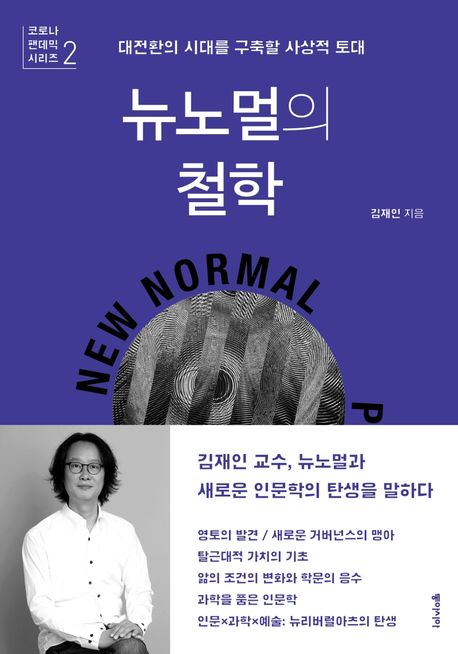The Philosophy of the New Normal
Author
Kim Jae-in

Some changes are temporary, but some changes are irreversible.
Imagine a new order beyond the modern values.
As COVID-19 spreads globally, it has changed many things. Existing orders, systems, and trends are crumbling, and we are rapidly entering a new world. Professor Kim Jae-in calls this situation the 'COVID-19 revolution.' Here, 'revolution' is not a political metaphor but rather denotes an event where one system can no longer sustain itself and rapidly changes into another. The COVID-19 revolution not only alters the visible trends, but also urges us to reconsider the concepts, values and ideologies that underpin our society. In this sense, this revolution is radical.
For example, there was controversy over the disclosure of the movements of COVID-19 patients, where 'individual rights' clashed with 'community safety.' Both are fundamental values that cannot be abandoned in democratic societies. However, the values we consider fundamental and universal often originate from specific historical and regional contexts. The concept of 'human rights' is no exception. In the West, the concept of 'citizen-individual' was shaped through resistance against violent powers such as kings, popes, and emperors, and it was believed that human rights were granted to them. Initially, citizenship and individual rights were recognized within a very narrow scope (upper class, male, white, adult), but through long struggles, this scope expanded, transcending status, gender, religion, race, and age. Thus, the opposite of human rights always presupposed tyranny. In Korea, the concept of human rights was established in opposition to authoritarian regimes or authoritarian power. The conflict between the values of 'privacy' and 'safety' also needs to be reinterpreted in this context.
The COVID-19 crisis is not only challenging the healthcare system and economic stability but also posing challenging questions to the ideological foundation we stand upon. And it reminds us of the fact that the concepts and values we have taken for granted, the modern values such as ‘territory’, ‘human rights’, ‘social contract’ that the book mainly deals with, can no longer properly support the world we live in. We’ve been ignoring and postponing, but the time has come to truly establish a new foundation."



